Interview: “God Brought Me To Cleanse, Put Order In The CBC”
- Par Kimeng Hilton
- 04 déc. 2024 17:13
- 0 Likes
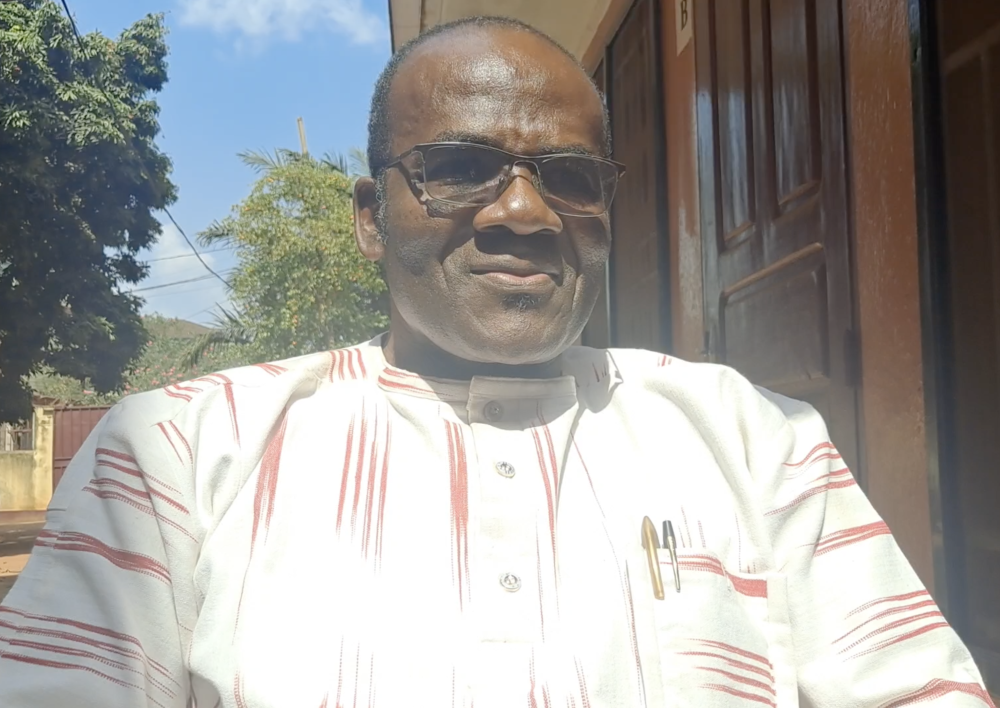
Rev. Dr. Charlemagne Nditemeh, outgoing Executive President of the Cameroon Baptist Convention, CBC.
In the morning of Saturday, November 23, 2024, the Executive President or current leader of the Cameroon Baptist Convention, CBC, shocked many. When in a recorded message and released statement, Rev. Dr. Charlemagne Nditemeh announced he would not be running for a second term. This was 30 minutes before the vote started in 12 centres across country.
In the following “balance sheet” interview, Rev. Dr. Nditemeh revisits his early childhood, self-conversion from Islam to Christianity, and his four-year tenure. He also recounts his ordeal with very powerful people in the church on whose feet he dared to step. And how they rose up and have been fiercely opposing his leadership. For blocking the loopholes of “church capture” such as leadership abuse, corruption and embezzlement. Also of note in the interview are the constitutional amendments and reforms he introduced to instil sanity in the management of church business.
And perhaps, most importantly, how through his policy of spiritual affirmative action, a clergyman from the South West Region was elected to the headship of the CBC. Rev. Dr. Teke John therefore becomes the second person from the South West Region to head the CBC in 70 years of existence! The groundbreaking vote of November 23, 2024 also saw the election of Mrs. Sofa Catherine as Deputy Chairperson of the CBC - the first time a Francophone would rise to such a senior position in the CBC.
Who is Rev. Dr Nditemeh Charlemagne?
I was born in Bangolan village, Babessi Subdivision in Ngoketunjia Division of the North West Region of Cameroon. I grew up in the village where I attended the Cameroon Baptist Convention Primary School, Bangolan. I was trained by my parents who were farmers. Being humble and with little means, my parents managed to send me to the defunct Saint James College in Ndop, Ngoketunjia Division.
Please, tell us how you converted from Islam to Christianity.
I was born a Moslem because my parents were Moslems. I had the blessing of attending the Cameroon Baptist Convention School, Bangolan. From the first day in Class One until Class Seven (as it was then the case), we had lessons in Education for Christian Living, ECL. Some of the Bible stories and lessons I learnt were in stark contrast to the teachings of Islam as I knew. As a young boy, I often followed my father to the mosque, but never attended any madrasa. While in Saint James College, Ndop, pastors used to come on Mondays to teach us about Jesus and God.
I later travelled to Nigeria to study Civil Aviation. Where I started questioning myself about life, religion and became inquisitive about my salvation. I finally arrived at the conclusion that between Islam and Christianity, the truth must be somewhere. This led me to go into deep research about these two faiths, which both claim Abraham as their ascendance, but have big differences.
I did comparative studies of aspects of Islam and Christianity. For example, the lives of Jesus Christ and the Prophet Mohammed, and their teachings; the lives of pastors in my village and the leading Islamic clerics I knew... No one talked to me about Jesus. After all this, I decided to give my life to Jesus, thanks to the work of the Holy Spirit already planted in me by the Bible lessons I received in primary school and college. I made the decision to follow Christ while serving in Douala International Airport.
I then followed up by moving over to Trinity Baptist Church, Douala where I met the pastor and recounted story. I requested to be baptised and to eventually be admitted into the membership of the church. This is how my Christian journey started. My father had a friend, a foreigner, who upon my birth, gave me the name Charlemagne, though my father still went ahead and gave me another name. My father used to work with road construction companies as a labourer. When I came to Christianity, I adopted the name Charlemagne, which already existed in some of my documents.
As you come to the end of your term as leader of the Cameroon Baptist Convention, what are some of the things that tremendously shaped you?
This is an interesting question! I was more focused on what the Lord used me to do than the things that shaped me in tremendous ways. That is, what the Lord used me to plant and uproot in the CBC. I must say my Christian values and convictions were seriously challenged during my tenure. In the past one year and more, I have been telling people very close to me that when I was in secondary school, there was a question in Economics which sounded funny. But fits with what I discovered in the CBC. The question was, “Money is what money does. Discuss.”
I have seen money convert people. It is difficult to imagine someone who has been in the church for very long and was glorified and celebrated by many Christians, because of money, tramples on the peace and econometry of the church and rubs a whole denomination in the mud. All because their economic interests were touched and their mafia uncovered... I admit I did not uncover everything, but I succeeded in uncovering some key things.
For example, I found out that people I had previously held in high esteem were acting so because of their economic interests. It is like a cartel with acolytes, friends and partners working underground. This discovery challenged me and helped me to understand that there is much in the Cameroon Baptist Convention I did not know. By leading the CBC for four years, I was able to see and understand more. For this, I give thanks to God!
Some people accused you of trying to stay in power longer. But at the last minute, you surprised them by deciding not to run for a second term.
When my detractors communicated and disseminated information to the effect that the constitutional amendment changing the tenure of office from four to five years was aimed at extending my present mandate, I simply laughed. I am a pastor called by God to serve Him, though I am not an angel nor a saint. I also have a background in Law which teaches that no good law is retroactive. I could not be elected for a four-year mandate and along the line, change it to five years. I understood my detractors were simply using it to corrupt those with weak minds.
When the constitution was amended and the five-year mandate was approved, I made it clear that it will be applied immediately across the board. From the local church pastors, deacons, men, women and youth leadership; all the way to the Executive President. And that it will only apply in my case after the end of my four-year tenure.
After a year in office, I already made up my mind not to seek re-election. I understood very clearly what my mission was - that God chose me to cleanse and put order in the CBC. I don’t believe I put everything right, but I tried. There were things that were visibly not going on well in the church. It was about instilling equity, justice... I cannot say how I came about the three key words that characterised my mandate - truth, equity and development. God just threw them on me!
The other challenge the CBC faces is structural, with departments in charge of their finances and electing their leaders. Don’t you think this should change?
There is a rectification to be made to your question. It is not absolutely true that each CBC department determines its finances and chooses its leaders. The CBC is structured this way – the General Session is the highest decision-making body. Below it is the General Council that acts in lieu of the General Session when the latter is not in session. Before the leader of any CBC department is selected, a Search Committee proposes a list of eligible candidates, which must be approved by the Office of the CBC Executive President.
The Search Committee then presents the shortlist to the board of the department concerned, which votes and selects a leader for the department. As well as the other officials of the department. The results are forwarded to the General Council for approval. It must be made clear that the General Council is not a push-over. It must give its approval before the department head is confirmed in their new role.
The idea of each department having their budget is very proper. In the past, the CBC had a central budget or “common pot” in which all departments dipped their hands and collected what they needed. And also brought in what they generated. A comparison of the era of “common pot” and decentralised finances as obtained today under the overall supervision of the Director of Finance and Development, shows that the CBC is better off under the latter model. What we need in CBC finances are checks and balances. We need to check rampant conflicts of interest and also close the several holes of embezzlement. There is a lot embezzlement in the system.
Let me please take you a little back to the start of your mandate. In what state did you find the CBC?
I met a Cameroon Baptist Convention where some workers were due retirement, but had continued working for 16 or more years! Some served for an additional one year or a few months after going on retirement. Service extensions were therefore common. When due retirement, some department heads served for two or four additional years. I also found out that the societal public did not know the General Secretary (now known as the Executive President) as the leader of the Cameroon Baptist Convention. Some referred to people they knew in the CBC as “the Director of CBC” because of their public visibility and dominance. Of course, there is no such position in the CBC! This was the state of things I met in the CBC.
Having discovered all this, what did you give priority to in your reforms?
One of the first things I said was that we have many Cameroonians, CBC Christians and Cameroonian Christians knocking at the doors of the CBC for employment. That serving until retirement is the grace of God. Retired people should give way to the thousands of young people to also work. I also decided that people due retirement should immediately do so.
However, we need service extensions only for people with special skills like specialised medical doctors. But such extensions are henceforth approved by the General Council. One person no longer decides who or who not to give extension to. There is need for checks and balances. The General Council is therefore the proper authority to grant or reject service extensions.
The other thing I realised with the system is that there were officials with limited service mandates and others with unlimited mandates. I knew quite well - like any conscientious and honest CBC Christian - that only one department head enjoyed unlimited mandates. While the head of the CBC was limited to two mandates! The same like Field and Association Pastors. I then placed my reforming finger on this, insisting that we had to reform the system. This is one of the changes we effected in the amended CBC Constitution in 2023 which is the cause of all the fighting you see today in the church.
What is the composition of the General Council that comes immediately under the General Session and acts in its lieu when the General Session is not meeting?
The General Council of the Cameroon Baptist Convention is made up of the officers of the CBC - the Executive President, the Chairperson and Deputy Chairperson, directors, field pastors, board chairs, and a lay person from each field. Because the CBC runs a congregational system of church government, the General Council is made up of 50 per cent laity and 50 per cent clergy.
What else is new in the revised 2023 CBC Constitution that some people have been contesting?
In reality, nothing is really new, but some salient modifications were made. The 2020 elections that brought me to the headship of the CBC were decentralised because of the COVID-19 pandemic. We realised that decentralised elections were better that those that previously held in one place. Centralised elections afforded “politicians” the opportunity to campaign for their candidates.
Secondly, centralised elections gave room for fraud. It is regrettable but the truth is that the CBC has in the past organised elections that were characterised by fraud. On the other hand, decentralised elections enable more delegates to attend because they do not have to cover long distances. They reduce the chances of fraud because there is no room for campaigning. So, one of the amendments of the 2023 constitution is for decentralised elections in the CBC.
When are candidatures for decentralised elections made known?
Nothing has changed with this. We have maintained our tradition. Two ad hoc committees are put in place before decentralised CBC elections, and are dissolved immediately after completing their tasks. First, is the Search Committee with a membership of five. The five members are prayerfully selected and elected by the General Council. They look through the human resources of the CBC and identify people qualified to stand for the three positions of Executive President, Chairperson and Deputy Chairperson. After the selection, the Search Committee submits its list to the Nomination Committee, which works on it. They prepare their shortlist, which is presented to Christians on election day to vote.
The decentralised CBC elections of November 23, 2024 were suspended or banned in many parts of the country by the courts and Divisional Officers, DOs. What is your assessment of the elections?
The elections went on very well despite two incidents. The “drummers” used money and worked very hard to frustrate the elections and the CBC. Which is what they have been doing in the past 18 months and more. They used their influence, power and whatever they could. The orders banning and suspending the elections came from three tracks. First, the courts suspending the elections like the Court of First Instance, Centre Administratif, Yaounde.
Its judgement was made on November 21, 2024 in favour of the three plaintiffs who represent only themselves. They do not represent any church, association, field nor the CBC. But the court in Yaounde saw it fit to enter judgement in their favour. Yet, the three plaintiffs come from different jurisdictions. Two are from Bamenda in the North West Region and one resides in Buea in the South West Region. But they sued the CBC and its officials in Yaounde and the court granted their prayer. We leave everything in the hands of God.
There was also a decision by the Court of First Instance in Bonanjo, Douala, banning the elections in Douala. Our lawyer was in court in Douala till 9pm on Friday, November 22, 2024, but the court never sat. After waiting this long, our lawyer left. This is why we went ahead to organise the elections in Douala the next day. Suddenly, the police arrived the voting centre at 12 noon, brandishing a court order banning the elections! Before we went to bed on November 22, 2024, there was no court judgement and no court order in Douala. But a court order was presented to us on Saturday, November 23, 2024 - a non-working day!
Because of the judgement by the Court of First Instance, Centre Administratif, Yaounde, our Christians relocated to Obala in Lekie Division, which is outside the jurisdiction of the court in Yaounde. It was a normal meeting of CBC Christians which was to culminate in the holding of elections. While in Obala, they followed our Christians to enforce a judgement that was meant for Yaounde voting centre! Unfortunately for them, they arrived when the elections had already been conducted.
The second track was using Divisional Officers to ban the elections. To my shock, in the evening of Friday, November 22, 2024 at about 7pm, there was a rain of orders by DOs banning decentralised CBC elections in their subdivisions. The third track which was unique took place in Garoua. There was no case against the CBC and the court never sat, but a magistrate signed an order banning elections in Garoua!
For the orders issued by DOs banning the elections, we informed the authorities of what was happening. We stressed that the CBC is a peaceful church conducting peaceful elections with no threat to public order because the elections were holding in church buildings. And that the people who had secured the orders banning the elections were the ones threatening public order by inciting CBC Christians to take to the streets.
Earlier in the morning of November 23, 2024, in my announcement that I will not run for a second term, I said I was doing so for the sake of peace in the CBC. And that peace is stronger than leadership, power... I have always told our Christians never to cause any disturbance to public peace. By the grace of God, all the ban orders by DOs were lifted and the elections went on hitch-free. In the case of the voting centre in Bamenda, the authorities did not only lift the ban, but sent security forces to ensure everything went well. In fact, elections held in all the 12 decentralised voting centres as planned and the results were published soon after.
The leadership of the Cameroon Baptist Convention has returned to the South West Region after the November 23, 2024 elections. Do you feel fulfilled by this result, given that your mandate also focused on equity or Christian affirmative action?
Before last month’s election, the last time someone from the South West Region was elected to head the CBC was almost 40 years ago! In 70 years of existence of the Cameroon Baptist Convention (1954-2024), the church has seen 14 leaders; including myself. One was American and only one was from the South West Region. He left office in 1987. The rest were all from the North West Region.
As a “primitive Christian” who believes in the Bible, leadership is a sharing ministry; a family needs to live in peace. Throughout my tenure, I insisted on equity. In 2007, CBC Christians from the South West Region wrote what was known as the Coastal Memorandum. I carefully read through it and saw that they had a point. When I finally came on board as leader of the CBC, I instituted “spiritual” affirmative action for inclusive leadership.
The political nature of the CBC is already well known – there are dominant tribes in terms of demography. Their people will always win elections and there was no way someone from the South West Region could come to power if we did not use affirmative action. They must be considered as stakeholders, people with whom we share the same faith and who must be listened to.
This is why we looked amongst Christians from the South West Region and selected those eligible, and voters made their choice. We cannot be Christians of the same denomination, but when it comes to leadership, people from a particular part of the country monopolise the position. I had this in my agenda and by the grace of God, both the Search and Nomination Committees also came to the same conclusion. The Nomination Committee shortlisted three people for the position of Executive President – myself and two others from the South West Region.
I had been working and praying to God to cause it to happen. Three years ago, my wife and I agreed that I should not seek re-election. This is why 30 minutes before the start of voting on Saturday, November 23, 2024, I announced I was stepping aside. Allowing the two candidates from the South West Region to run, knowing that someone from the region must win. This is how Rev. Dr John Teke, my younger brother, won. I will happily hand over to him with all my blessings.
A Francophone was elected to the highest ever office in the CBC.
This also is another great reality in the elections of November 23, 2024. During my visits to fields in 2024, I constantly made known my dream that one day a Francophone will rise to the leadership of the CBC. Little did I know that the Deputy Chairperson of the CBC will be a Francophone in last month’s elections. Mrs Sofa Caroline was elected to the position with 930 votes, beating Mrs. Quan Efeti who had 925 votes! I simply s...
Cet article complet est réservé aux abonnés
Déjà abonné ? Identifiez-vous >
Accédez en illimité à Cameroon Tribune Digital à partir de 26250 FCFA
Je M'abonne1 minute suffit pour vous abonner à Cameroon Tribune Digital !
- Votre numéro spécial cameroon-tribune en version numérique
- Des encarts
- Des appels d'offres exclusives
- D'avant-première (accès 24h avant la publication)
- Des éditions consultables sur tous supports (smartphone, tablettes, PC)






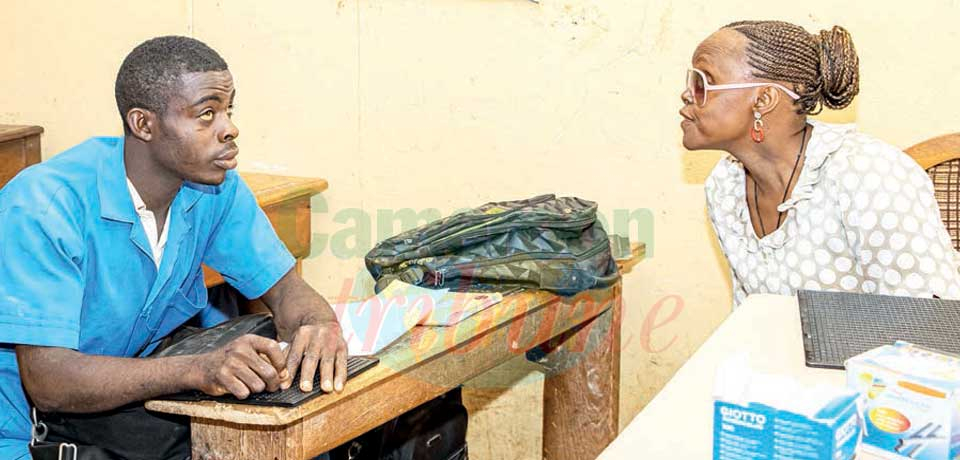
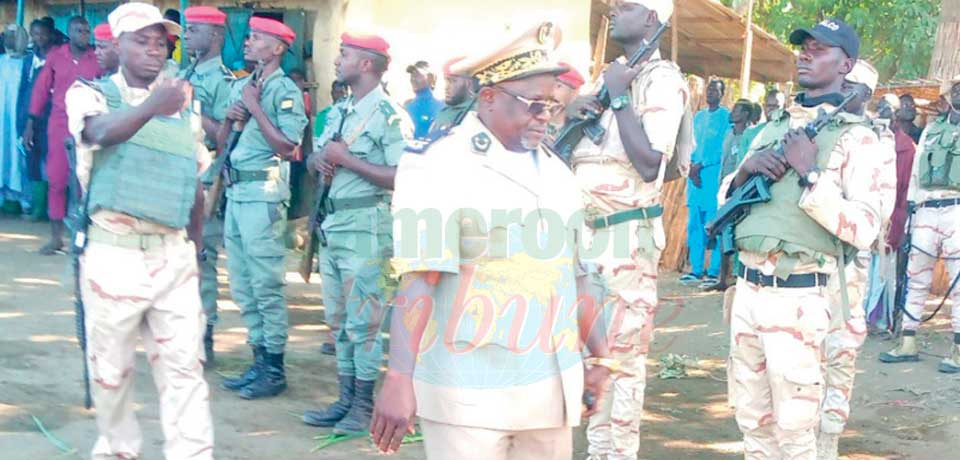
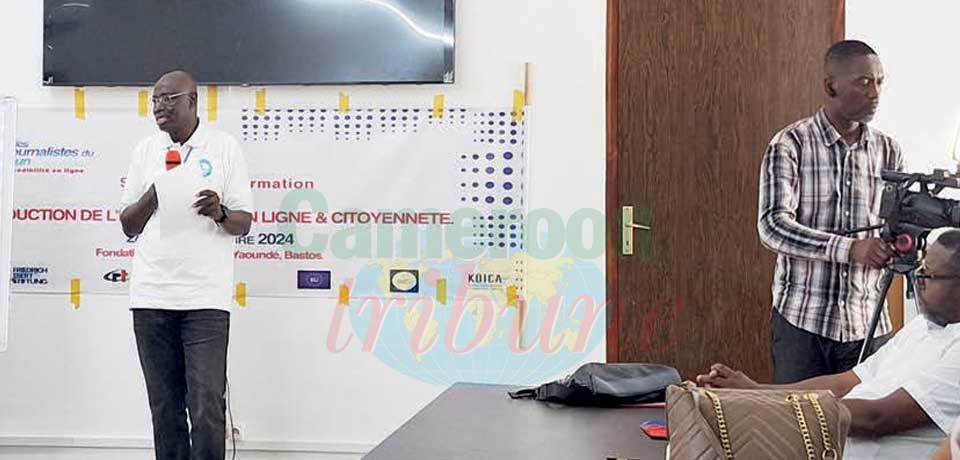
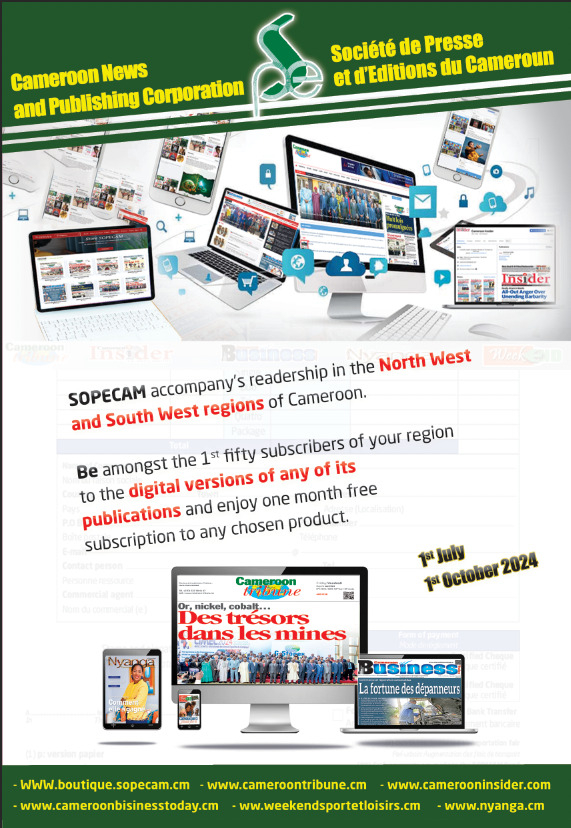
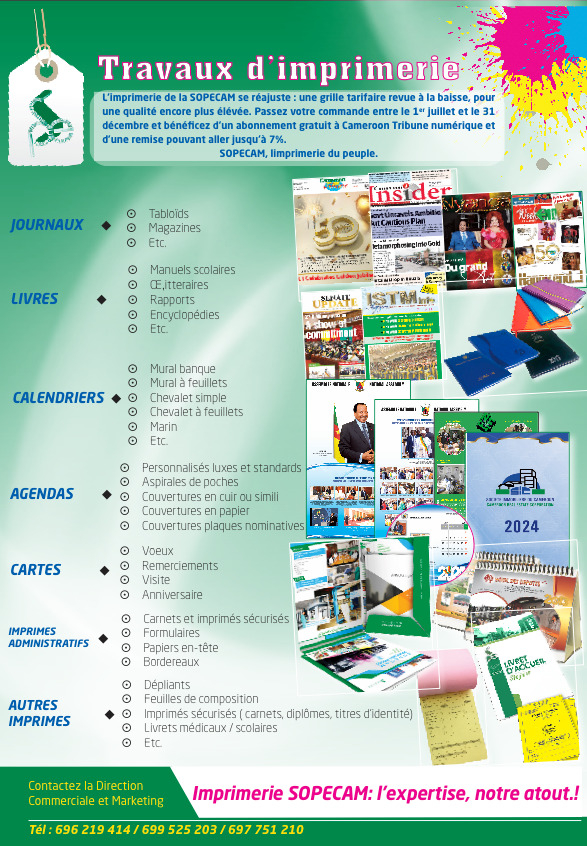
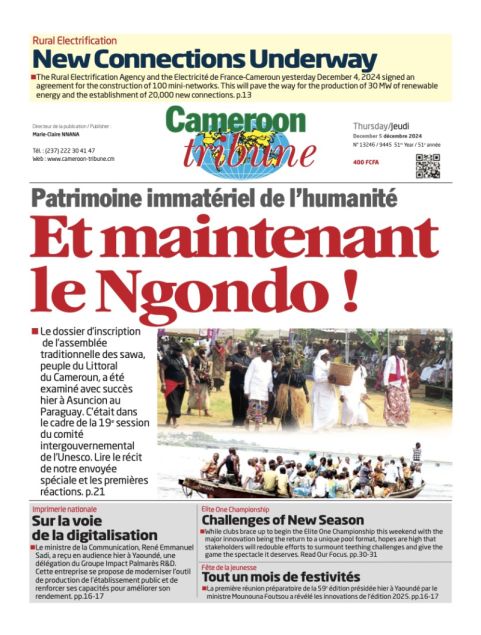




Commentaires